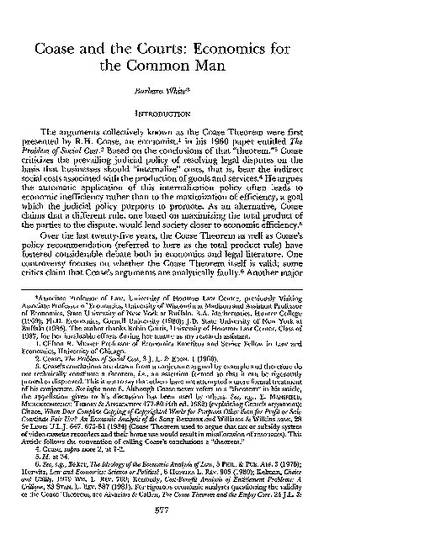
- Law and
- Law and Economics
The arguments collectively known as the Coase Theorem criticize the judicial policy of requiring businesses to ‘internalize’ their external costs of production, i.e., pay for the social costs their production incurs such as environmental or noise pollution. Coase argues that the policy of internalization often leads to economic inefficiency rather than efficiency maximization, contrary to what Pigouvian economic analysis asserts. The right to be free of the external costs of production ought to be based, instead, on Coase’s total product rule: Courts should allocate rights according to what maximizes overall total production and thereby maximize social welfare.
Coasian analysis has been the bedrock of the Chicago Law and Economics school of thought pretty much since Coase’s paper, The Problem of Social Costs, was published in the Journal of Law and Economics in 1960. Though since its inception, there have been debates both as to the Coase Theorem’s validity and its meaning (in part because it invariably leads to a redistribution of wealth to the more advantaged), no one has evaluated the Coase Theorem for its economic correctness, that is, is it correct economic analysis per se?
In this Article, I demonstrate with economic analysis, especially with the economic “theory of the 2nd best,” that Coase’s total product rule does not promote economic efficiency any more or less than judicial policies that focus on traditional principles of fairness and equity. In fact I show, from an economic analysis perspective, that Coase's total product rule serves primarily as a mechanism for redistributing wealth (as surmised by Coase’s political critics) and not to maximize total product as he claims.
Although Coase implicitly claims that his approach does not contain value choices, an analysis of his economic methodology indicates that his theory does indeed mask one.
